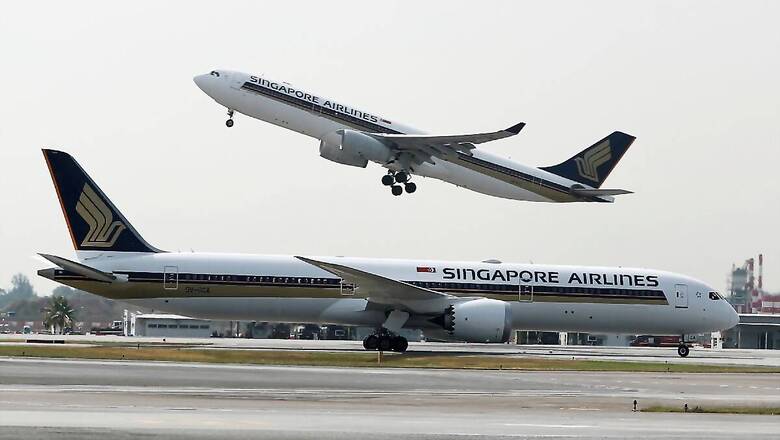
views
As vaccination drives gain traction, the travel industry is waiting to see signs of international aviation picking up. The pandemic has led to the normalisation of social distancing, quarantine and testing procedures which together stand squarely in the face of air travel as we know it; yet they are here to stay. Further, air travel that depends on collectively agreed upon and universally accepted standards faces an atmosphere of disarray. Countries are mandating health protocols and in many cases this is going beyond the purview of aviation. One can no longer take for granted that travelling to New York will entail similar procedures as travelling to London or travelling to Dubai. Each country and cities within countries now have varied procedures. And this poses a significant hurdle to the revival of international traffic flows.
The nature of the challenge traces back to the “nationalistic” nature of the aviation industry. This stems from the fact that most airlines and airports historically were owned and operated by the respective governments. Furthermore, aviation has a tendency to generate headlines and in many ways influence the narrative. Throw in the impact on jobs, economic growth and taxes, and so intense involvement by policymakers and politicians is a given.
The current challenge of international aviation deals with non-standard and individual measures levied. Consider the difference in arrival formalities between Dubai, Singapore and New York. In the case of Dubai, passengers arriving there must hold a negative RT-PCR test certificate, printed in English, for which the test must be taken no more than 72 hours prior to the time of departure. Furthermore, passengers from select countries like India, Afghanistan and Bangladesh to Dubai require one more test on arrival, and all must also download the Covid-19 DXB Smart app. Compare this to Singapore where all travellers have to take an RT-PCR test upon arrival and foot the bill of $200. Short-term visitors are not allowed while transit passengers are provided with a wristband for access to the designated transit holding areas at Singapore’s Changi airport. Finally, compare both Dubai and Singapore formalities to New York where travellers must take the test within three days before arrival and must then quarantine for three days and then take a second test with a negative result. Three cities, three countries, three different procedures.
To combat this challenge, the International Air Transport Association is pushing for a standardised digital pass labelled as the IATA travel pass. The goal is to restart international aviation while ensuring that the risks of the virus are mitigated. The only challenge is each country views the virus and views the strategy to eliminate or contain it differently. Furthermore, not all airlines are members of the IATA which then only adds to the challenges. For all to agree on a common set of measures requires deft diplomatic manoeuvres which leaves much to question.
In the absence of a consensus-driven, collaborative and cooperative approach, air travel will continue to see complex and asymmetric rules. Rules that speak to each country, to politics, to virus containment strategies and to public opinion. And these rules will be carried. And inherently nonstandard. Consequently, the impact on air travel will be adverse.
The International Civil Aviation Organization (ICAO) has stepped up its efforts, as has the International Air Transport Association (IATA). Yet a global consensus is extremely hard. Events in the recent past such as the Qatar blockade (where several countries banned Qatar-registered aircraft from overflying their airspace) or the Abraham accord (which normalised relations between the UAE and Israel) are essentially bilateral agreements that have happened due to political will in respective countries and not because of global pressure. As such, to assume that diplomatic pressure will work towards driving consensus is at best a variance from reality. All this while, countries and cities continue to have their own set of social-distancing measures, quarantine requirements and testing procedures. An international aviation challenge looms.
Satyendra Pandey is an India market expert and has held a variety of roles within the aviation business. He is also a certified pilot with an instrument rating. Views expressed are personal.
Read all the Latest News, Breaking News and Coronavirus News here. Follow us on Facebook, Twitter and Telegram.




















Comments
0 comment